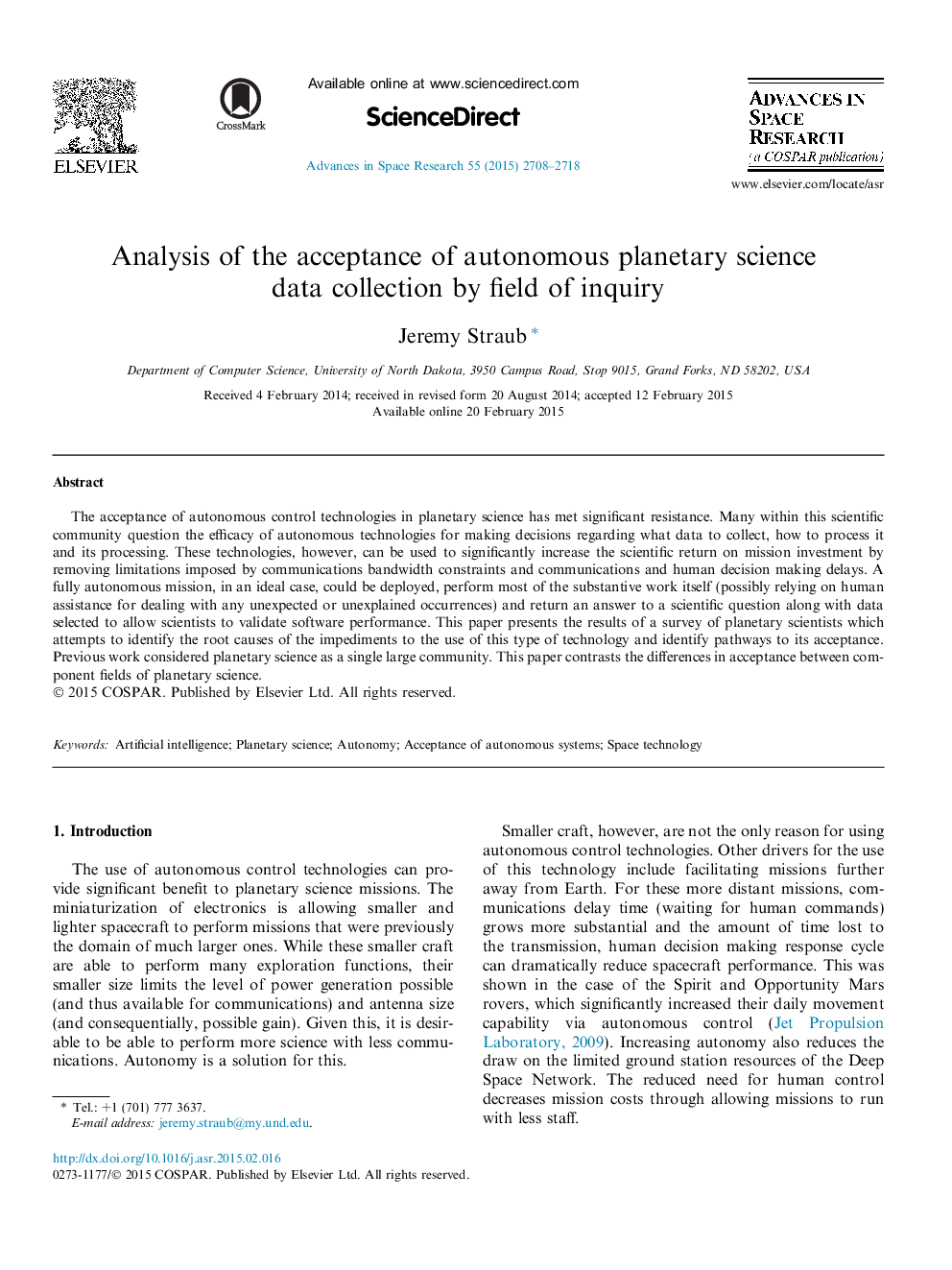| Article ID | Journal | Published Year | Pages | File Type |
|---|---|---|---|---|
| 1763415 | Advances in Space Research | 2015 | 11 Pages |
•A study on the acceptance of autonomy in planetary science.•Assesses whether acceptance of autonomy varies by subject focus.•Assesses whether techniques for increasing confidence vary by subject focus.
The acceptance of autonomous control technologies in planetary science has met significant resistance. Many within this scientific community question the efficacy of autonomous technologies for making decisions regarding what data to collect, how to process it and its processing. These technologies, however, can be used to significantly increase the scientific return on mission investment by removing limitations imposed by communications bandwidth constraints and communications and human decision making delays. A fully autonomous mission, in an ideal case, could be deployed, perform most of the substantive work itself (possibly relying on human assistance for dealing with any unexpected or unexplained occurrences) and return an answer to a scientific question along with data selected to allow scientists to validate software performance. This paper presents the results of a survey of planetary scientists which attempts to identify the root causes of the impediments to the use of this type of technology and identify pathways to its acceptance. Previous work considered planetary science as a single large community. This paper contrasts the differences in acceptance between component fields of planetary science.
